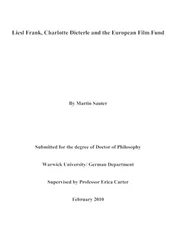Frank Tallis - Death And The Maiden
Здесь есть возможность читать онлайн «Frank Tallis - Death And The Maiden» весь текст электронной книги совершенно бесплатно (целиком полную версию без сокращений). В некоторых случаях можно слушать аудио, скачать через торрент в формате fb2 и присутствует краткое содержание. Жанр: Исторический детектив, на английском языке. Описание произведения, (предисловие) а так же отзывы посетителей доступны на портале библиотеки ЛибКат.
- Название:Death And The Maiden
- Автор:
- Жанр:
- Год:неизвестен
- ISBN:нет данных
- Рейтинг книги:5 / 5. Голосов: 1
-
Избранное:Добавить в избранное
- Отзывы:
-
Ваша оценка:
- 100
- 1
- 2
- 3
- 4
- 5
Death And The Maiden: краткое содержание, описание и аннотация
Предлагаем к чтению аннотацию, описание, краткое содержание или предисловие (зависит от того, что написал сам автор книги «Death And The Maiden»). Если вы не нашли необходимую информацию о книге — напишите в комментариях, мы постараемся отыскать её.
Death And The Maiden — читать онлайн бесплатно полную книгу (весь текст) целиком
Ниже представлен текст книги, разбитый по страницам. Система сохранения места последней прочитанной страницы, позволяет с удобством читать онлайн бесплатно книгу «Death And The Maiden», без необходимости каждый раз заново искать на чём Вы остановились. Поставьте закладку, и сможете в любой момент перейти на страницу, на которой закончили чтение.
Интервал:
Закладка:
‘Herr Doctor,’ said Mahler icily, ‘thank you for your kind offer, but I fear we do not have the time.’
‘What I have in mind would take no longer than twenty or thirty minutes.’
‘What are you proposing?’
‘Hypnosis. Let us attempt to remove Herr Schmedes’s anxiety by hypnosis.’
Liebermann took the metronome from the top of the director’s piano, wound the key to its limit, and placed the device on the desktop. He set the rod in motion and the room filled with a ponderous ticking like the inner workings of an enormous grandfather clock.
Erik Schmedes sat in front of the desk, closely observing the weight as it swung from side to side. Liebermann was seated beside him, while Mahler, Rheinhardt and Przistaupinsky stood by the door, beyond Schmedes’s line of vision.
‘Keep your eyes focused on the metronome,’ said Liebermann in a soft monotone. ‘Empty your mind — forget your worries — and watch the weight as it traces an arc — this way — then that — this way — then that. As you watch the weight you may find that your eyes are becoming tired, your eyelids heavier. If this happens, do not resist. Just accept and surrender. Listen. How pleasing the regularity of the beat, the gentle rhythm, like the rocking of a cradle — this way — then that. Watch the metronome and allow your mind to become a still surface, calm and untroubled.’
Almost immediately, Schmedes’s eyelids began to flicker. The muscles of his face became slack and his lips parted. Liebermann continued speaking in his gentle monotone, occasionally introducing commands instead of suggestions.
‘You are feeling sleepy … your eyelids are heavy … you are struggling to keep your eyes open.’
A few minutes later, Schmedes’s breathing had become slow and stertorous.
His head slumped forward.
‘On the count of three,’ said Liebermann, ‘you will close your eyes and sleep. A special sleep, in which you will be able to hear and understand every word I say. One — you are so tired — two — so very tired — three.’ Liebermann reached forward and silenced the metronome.
‘You are now asleep.’
Liebermann looked at his audience. Rheinhardt was smiling proudly and Mahler’s face was rigid with concentration, his hands clasped tensely in front of his mouth. Przistaupinsky was watchful, even distrustful, perhaps.
Liebermann continued. ‘Can you hear me, Herr Schmedes?’
The tenor’s head rocked backwards and forwards.
‘Very good,’ said Liebermann. ‘Now, I want you to listen to me very carefully. You have nothing to fear. Nothing, do you understand? As I speak, your fear will melt away, like ice in sunlight. And when the fear is gone, you will feel strong and confident. If you sing the role of Rienzi tonight, no one will follow you after the performance, no one will attack you. The supporters of Hermann Winkelmann did not want you to sing this evening, but Herr Winkelmann is ill, and now the Hermann-Bundler cannot possibly object to you taking his place. None will argue that Herr Winkelmann has been treated disrespectfully. You will sing the role of Rienzi, tonight, because there is no-one else who can do so. It is perfectly safe for you to sing. Repeat after me: it is perfectly safe for me to sing.’
‘It is perfectly safe for me to sing,’ mumbled Schmedes.
‘ I have nothing to fear.’
‘Nothing to fear.’
‘Excellent.’ Liebermann gripped the singer’s shoulder. ‘Do not worry about the Hermann-Bundler , Herr Schmedes. They are not important. Only your admirers are important. You must not let them down. You are Erik Schmedes — the great Schmedes — giant of the north. Your Tristan was a triumph! How the critics praised your sensitivity and intelligence! How they marvelled at the phrasing and expression of your cantilena . And how they will praise you again, after you give them an unforgettable Rienzi tonight! You will be the toast of Vienna.’
‘The toast of Vienna,’ echoed Schmedes, before adding, rather unexpectedly: ‘Giant of the north.’
Shaking Schmedes’s shoulder in the spirit of manly brotherhood, Liebermann continued, ‘You are feeling full of vigour, fit and healthy, strong as an ox, eager to take to the stage.’
The young doctor paused and watched with satisfaction as Schmedes’s chest expanded and his expression set in an attitude of stoic rigidity.
‘Listen carefully, Herr Schmedes. Very soon you will awaken from this sleep, fully restored. But you will remember nothing of our conversation. Do you understand?
‘I understand.’
‘Good. Now, on the count of three, you must open your eyes. One, waking , two, waking , three! You are awake!’
Liebermann removed his hand from the tenor’s shoulder.
Schmedes blinked a few times and then turned to face Liebermann. ‘Ah, the metronome has stopped. What a shame, I thought I was drifting off just then. The slow beat was certainly helping. Never mind, perhaps we can conduct this experiment another time. I am afraid I must hurry home. You see, I have an opera to perform this evening.’ Schmedes stood up, straightened his jacket and addressed Mahler. ‘This has been very interesting, Herr Director, but I really must be going.’
The director stepped aside and allowed Schmedes to open the door.
‘Schmedes?’ said the director.
‘Yes?’
‘You were worried about that letter.’
‘Oh yes,’ said Schmedes. ‘How stupid of me. Yes, I was being foolish — you were quite right. It’s perfectly safe for me to sing. I have nothing to fear. And I have my public to consider. They will be expecting another Tristan and I do not intend to disappoint them! Goodbye, Herr Director.’
And with that the singer departed, slamming the door behind him. The company listened to him running down the stairs, singing the overture to Lohengrin .
‘Well,’ said Mahler. ‘That was quite remarkable. I am most impressed, Herr Doctor. Please forgive me for the impatience I displayed earlier.’
Liebermann stood up and inclined his head.
‘Now that Doctor Liebermann has dealt with your crisis,’ said Rheinhardt, ‘could we resume our interview?’
‘With pleasure,’ said Mahler, laughing out loud. ‘With great pleasure.’
9
‘Do you realise how many people work here, Inspector?’ said the director. ‘There are the principal performers, several choruses, choirmasters and repetiteurs, the members of the orchestra, guest instrumentalists, piano accompanists and the prompt. The stage machinery alone requires fifty permanent operators and a dozen electricians, and another thirty-five stage-hands are employed for large productions. There are the administrators, the costume designers, seamstresses, tailors, painters, carpenters, light engineers, porters, ushers, dressers, cloakroom attendants, and box-office staff. We even have our own opera physician. I could go on. The court opera is like a small principality. You wish to conduct an investigation — but where, exactly, do you propose to start?’
Rheinhardt took a slim box of trabucos from his coat pocket and offered one to the director.
Mahler waved his hand in the air.
‘No, have one of mine. I owe you two gentlemen this small courtesy, at least.’ He opened a desk drawer and removed a canister packed with fat cigars wrapped in silver paper. As he distributed them he added, ‘A gift from an archduke who fancies himself a composer. These cigars arrived with an opera score and a request for me to consider it for inclusion in next year’s programme. Regrettably, the music was entirely without merit and I had to refuse him. The lord chamberlain wasn’t very happy, but what was I supposed to do?’
Читать дальшеИнтервал:
Закладка:
Похожие книги на «Death And The Maiden»
Представляем Вашему вниманию похожие книги на «Death And The Maiden» списком для выбора. Мы отобрали схожую по названию и смыслу литературу в надежде предоставить читателям больше вариантов отыскать новые, интересные, ещё непрочитанные произведения.
Обсуждение, отзывы о книге «Death And The Maiden» и просто собственные мнения читателей. Оставьте ваши комментарии, напишите, что Вы думаете о произведении, его смысле или главных героях. Укажите что конкретно понравилось, а что нет, и почему Вы так считаете.












